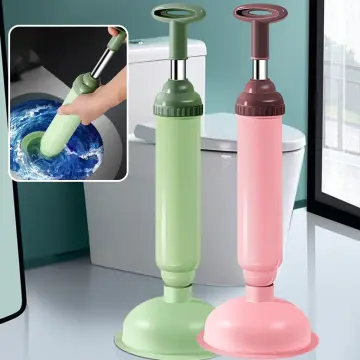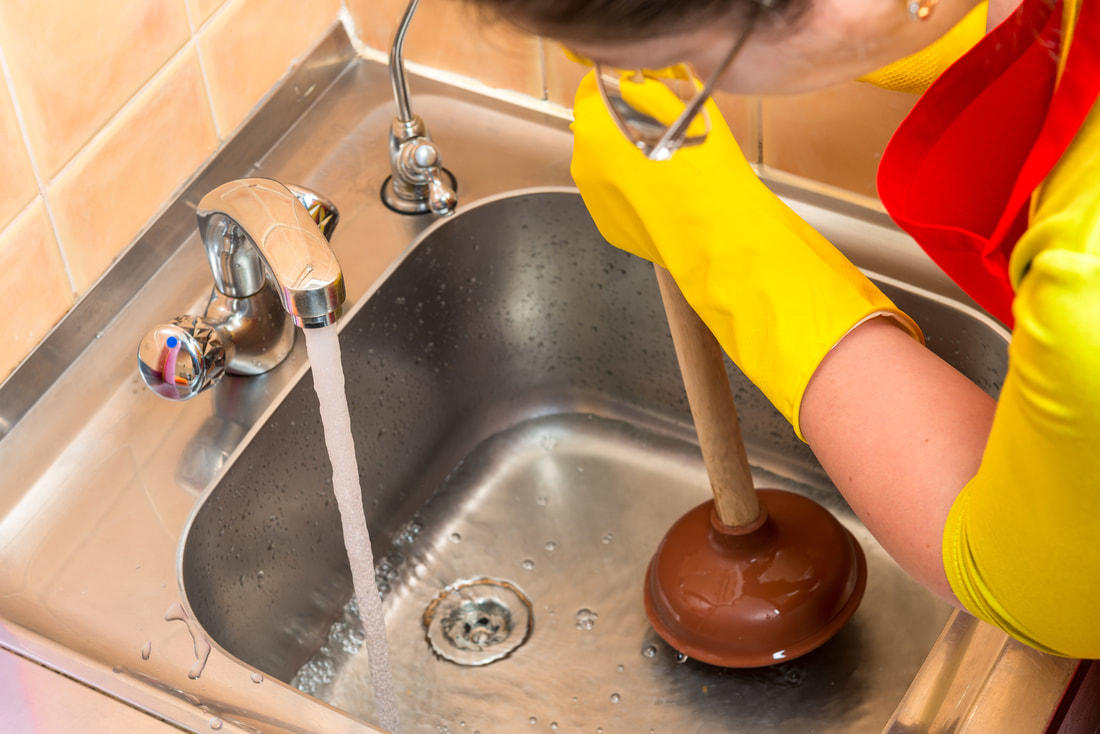Efficient Plungers and Drain Cleaners Use: Crucial Tips
Efficient Plungers and Drain Cleaners Use: Crucial Tips
Blog Article
Almost everyone maintains their own piece of advice involving How to Unclog Your Sink with a Plunger.

Intro
Proper maintenance of home drains pipes is essential for avoiding blockages and making sure smooth water circulation. One of the secret devices in every property owner's toolkit is the bettor, alongside various drainpipe cleansers created to deal with persistent clogs successfully. This short article explores exactly how to make use of bettors and drainpipe cleansers properly to maintain your drains streaming freely.
Area 1: Comprehending Plungers
Types of Plungers
There are a number of sorts of plungers readily available, each created for different kinds of drains pipes and blocks. The most usual types consist of cup plungers, flange bettors, and accordion bettors.
How Plungers Work
Plungers work with the principle of creating pressure and suction to remove clogs. When correctly applied over a drainpipe, they develop a vacuum cleaner that can take out debris or separate obstructions.
Picking the Right Bettor
Selecting the best bettor relies on the kind of drainpipe and the nature of the obstruction. Cup bettors are excellent for sinks and bathtubs, while flange bettors are much better matched for commodes because of their style.
Typical Errors with Bettors
Avoiding these mistakes makes certain reliable plunging: incorrect seal around the drain, inadequate force, and not clearing bordering debris.
Section 2: Utilizing Plungers Successfully
Preparation
Prior to plunging, ensure the plunger covers the drain entirely and creates a limited seal. Clear any kind of visible debris around the drain opening.
Method
Start with gentle diving movements to develop suction. Rise pressure slowly, utilizing a consistent rhythm. Repeat as necessary until the drainpipe removes.
Troubleshooting Tips
If diving doesn't work, try adjusting the seal, using oil jelly for a better seal, or using a various kind of plunger.
Section 3: Understanding Drainpipe Cleansers
Sorts Of Drain Cleaning Company
Drain pipes cleaners can be chemical or chemical. Chemical cleansers make use of strong chemicals to liquify blockages, while chemical cleansers make use of all-natural enzymes to break down organic matter.
Exactly How Drainpipe Cleaners Work
Chemical cleansers respond with blockages to dissolve them, while chemical cleaners break down natural products like hair and grease without harming pipelines.
Safety Considerations
Always wear gloves and eye security when making use of chemical drainpipe cleaners. Make certain sufficient air flow and comply with manufacturer guidelines carefully.
Eco-Friendly Alternatives
Consider utilizing vinegar and baking soft drink or enzyme-based cleansers for eco-friendly options that are safer for pipes and the environment.
Section 4: Making Use Of Drainpipe Cleansers Successfully
Application Methods
Put chemical cleansers directly into the drainpipe opening. Enable them to help the advised time before purging with warm water. Enzymatic cleansers must sit overnight.
Preventative measures
Avoid mixing different types of cleansers, as this can create harmful fumes. Never ever utilize chemical cleansers in conjunction with a plunger, as spilling can take place.
Managing Stubborn Obstructions
For persistent obstructions, think about utilizing a pipes snake or calling a specialist plumber to prevent damages to pipelines.
Conclusion
Finally, understanding exactly how to make use of bettors and drain cleaners properly is necessary for maintaining healthy and balanced plumbing systems. By picking the right tools and strategies, homeowners can take on minor clogs and prevent major pipes concerns down the line.
How To Properly Use A Plumbing Snake To Clear Drains
When any drain clogs in our home arise, we tend to gravitate toward the plunger and little else. In cases where the plunger and its vacuum-created pressure are not able to clear clogs, many immediately move to harmful chemicals or simply call their plumber to fix the issue.
we’re happy to help with all drain cleaning needs and concerns. This includes informing you on a few other home remedies you may have at your disposal for minor to moderate clogs, one of which is the use of a plumbing snake. Many people have never used one of these before – let’s go over the steps to take when your drain clogs and you have a plumbing snake available.
Attempt Plunger Use
The first step here, as we noted above, should indeed be to grab your plunger when you notice a drain clog and attempt to resolve it this way. If you’re unsure how to use a particular type of plunger, our plumbers can answer any questions you have. If this doesn’t do the trick, however, you move on to the snake.
Locate And Prepare Snake
A plumbing snake is a metal or plastic device that’s generally about a quarter of an inch thick. It’s design with significant extensions, meant to reach down into your clogged drain and push the clog out. Snakes also contain drain augers that will latch onto and push stubborn blockages.
If your plunger doesn’t clear a clog, locate your snake and bring it to the drain in question. We also recommend keeping a bucket nearby to collect the clog once you pull it out, plus we’d advise wearing goggles and possibly protective gloves.
Feed Snake
Once you’re ready to go, feed the snake slowly down the drain, using the crank device it comes with to keep it moving until it finds the clog. Once this happens, much of the clog will be latched onto the coil so you can pull it out, while the rest will simply break up and flow downward.
Detach Debris
Remove the snake slowly from the drain, and once you’ve done so, pick off any debris that’s stuck to the coil. This is another area where wearing gloves is a must.
Flush Drain
Finally, take a few minutes to ensure the snake has done its job correctly. If you’ve been using it on a toilet, flush the toilet a couple times and make sure everything flows well. If you’ve used it on a different drain, flush it with some room temperature water.
https://www.mybuddytheplumber.com/blog/how-to-properly-use-a-plumbing-snake-to-clear-drains/

Application Methods
Put chemical cleansers directly into the drainpipe opening. Enable them to help the advised time before purging with warm water. Enzymatic cleansers must sit overnight.
Preventative measures
Avoid mixing different types of cleansers, as this can create harmful fumes. Never ever utilize chemical cleansers in conjunction with a plunger, as spilling can take place.
Managing Stubborn Obstructions
For persistent obstructions, think about utilizing a pipes snake or calling a specialist plumber to prevent damages to pipelines.
Conclusion
Finally, understanding exactly how to make use of bettors and drain cleaners properly is necessary for maintaining healthy and balanced plumbing systems. By picking the right tools and strategies, homeowners can take on minor clogs and prevent major pipes concerns down the line.
How To Properly Use A Plumbing Snake To Clear Drains
When any drain clogs in our home arise, we tend to gravitate toward the plunger and little else. In cases where the plunger and its vacuum-created pressure are not able to clear clogs, many immediately move to harmful chemicals or simply call their plumber to fix the issue.
we’re happy to help with all drain cleaning needs and concerns. This includes informing you on a few other home remedies you may have at your disposal for minor to moderate clogs, one of which is the use of a plumbing snake. Many people have never used one of these before – let’s go over the steps to take when your drain clogs and you have a plumbing snake available.
Attempt Plunger Use
The first step here, as we noted above, should indeed be to grab your plunger when you notice a drain clog and attempt to resolve it this way. If you’re unsure how to use a particular type of plunger, our plumbers can answer any questions you have. If this doesn’t do the trick, however, you move on to the snake.
Locate And Prepare Snake
A plumbing snake is a metal or plastic device that’s generally about a quarter of an inch thick. It’s design with significant extensions, meant to reach down into your clogged drain and push the clog out. Snakes also contain drain augers that will latch onto and push stubborn blockages.
If your plunger doesn’t clear a clog, locate your snake and bring it to the drain in question. We also recommend keeping a bucket nearby to collect the clog once you pull it out, plus we’d advise wearing goggles and possibly protective gloves.
Feed Snake
Once you’re ready to go, feed the snake slowly down the drain, using the crank device it comes with to keep it moving until it finds the clog. Once this happens, much of the clog will be latched onto the coil so you can pull it out, while the rest will simply break up and flow downward.
Detach Debris
Remove the snake slowly from the drain, and once you’ve done so, pick off any debris that’s stuck to the coil. This is another area where wearing gloves is a must.
Flush Drain
Finally, take a few minutes to ensure the snake has done its job correctly. If you’ve been using it on a toilet, flush the toilet a couple times and make sure everything flows well. If you’ve used it on a different drain, flush it with some room temperature water.
https://www.mybuddytheplumber.com/blog/how-to-properly-use-a-plumbing-snake-to-clear-drains/

As a passionate person who reads on Tips on How to Effectively Use a Plunger, I imagined sharing that excerpt was necessary. Are you aware of another person who is interested by the subject? Take a moment to share it. Many thanks for being here. Come back soon.
Request Appointment Report this page